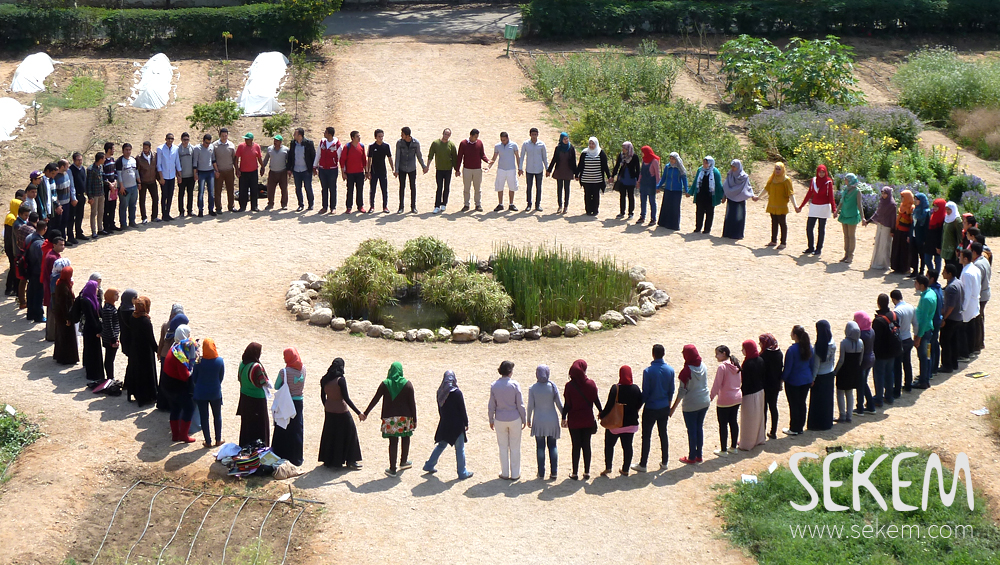The Dutch SEKEM Friends Association is extending their support for the Core Program of Heliopolis University to finally achieve the realization of building a House of Cultures. Digna Donze and Hendrik Jan Bakker, two ambitious members of the Dutch SEKEM Friends write about their activities.
About five years ago, when Heliopolis University for Sustainable Development was still to be opened, Dr. Ibrahim Abouleish introduced the idea to develop a cultural institution for the exchange of knowledge and ideas between east and west, north and south: a House of Cultures. It involves exchanges in various fields ranging from culture and religion to environmental and food issues.
SEKEM has informally been working along these lines for years and is itself a wonderful result of this approach. SEKEM works for instance on sustainable solutions for the food shortage in Egypt and on tolerance between the different religious communities in the surrounding villages. Regularly people from different countries visit SEKEM, who are dealing with similar interests. They contribute to SEKEM or collect ideas to solve problems back home. Hence, the exchange of ideas and practices took place informally and on a small scale.
In anticipation of this, we started strengthening the Core Program of Heliopolis University, which is obligatory for all students, fostering social and cultural education. Once the Core Program is firmly established, the focus will be shifted to build up the House of Cultures in a separate building.
Since a lot of funding is required, which neither Heliopolis University nor the SEKEM Development Foundation or the European SEKEM Friends Associations possess, project applications have been submitted to international funds, such as Oxfam Novib, the Anna Lindh Foundation and Erasmus+. Arjen Schamhart and Erik Prins were approached as professional fundraisers. Arjen Schamhart has made his mark with conducting the financing of SEKEMs School for Children with Special Needs in collaboration with the Dutch development aid organisation “Wilde Ganzen” and with clarifying the financial accounts of SEKEMs Community School. Erik Prins was working for Wageningen University.
Their work is pre-financed by the SEKEM Development Foundation together with the Dutch and German SEKEM Friends Associations.
Authors: Digna Donze and Hendrik Jan Bakker
Bert de Graaff and Digna Donze (board members of the Dutch SEKEM Friends Association) oversee the fundraising activities and work together with Dr. Dahlia Khalil, head of the Core Program of Heliopolis University, who is functioning as a spokesperson in this context.
Read more about the Dutch SEKEM Friends Association
Read more about the latest meeting of the European SEKEM Friends Associations

